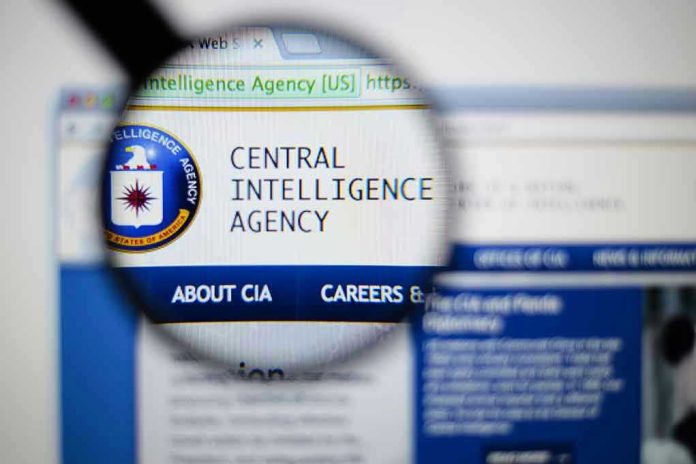
How close did the U.S. come to flipping Nicolás Maduro’s most trusted pilot—and what does it say about the future of regime change in the Americas?
Story Snapshot
- U.S. agents tried recruiting Maduro’s chief pilot with promises of cash and fame, aiming to hijack the Venezuelan leader’s plane for arrest.
- The months-long covert operation failed, exposing deep U.S. intervention and creating a propaganda boon for Maduro’s regime.
- Bitner Villegas, the pilot, chose loyalty over fortune, appearing on Venezuelan TV to denounce the plot and reaffirm his allegiance.
- This episode blurs the line between law enforcement and espionage, raising new questions about the reach and risks of U.S. foreign policy.
U.S. Plots to Capture a President by Turning His Inner Circle
April 2024 marked a rare opening for U.S. authorities determined to bring Venezuelan President Nicolás Maduro to justice. When Maduro’s presidential jets landed in the Dominican Republic for repairs, a Homeland Security Investigations agent named Edwin Lopez saw a window for action. His target was not Maduro himself, but Bitner Villegas—the president’s chief pilot, a man with singular access to Venezuela’s most sought-after fugitive. Lopez approached Villegas at Santo Domingo’s airport with a pitch: betray Maduro, reroute the plane, and reap wealth and celebrity beyond imagination.
Encrypted messages zipped between agent and pilot for months. The U.S. agent doubled down, referencing the $50 million reward for Maduro’s capture, painting a picture of life after defection. Officials hoped that, with the right inducements, even a trusted Honor Guard member could be tempted to deliver America’s most wanted foreign leader on a silver platter. But trust is a rare commodity in Caracas, and Villegas, under intense scrutiny, kept the conversation going—possibly to protect himself, possibly to weigh his options, or perhaps both. He ultimately refused, and the plot unraveled into public spectacle.
Why the Maduro Plot Signals a New Era of Clandestine Statecraft
U.S. efforts to topple unfriendly Latin American governments are nothing new, but the Villegas operation stands out for its personal approach. Instead of military invasions or backing coups, federal agents went after the man in the cockpit, betting that money and safety could trump loyalty. According to sources, this was not a rogue initiative: the Department of Homeland Security and Justice Department were fully engaged, leveraging legal indictments, bounties, and covert diplomacy in hopes of pulling off a regime change with minimal bloodshed.
The failed recruitment attempt became public in autumn 2025, when international media broke the story. Villegas, now back in Venezuela, emerged on state TV, denouncing the U.S. plot as a violation of sovereignty and pledging allegiance to Maduro. Senior regime officials seized on the moment, staging loyalty parades and denouncing Yankee aggression. In the short term, Maduro gained a propaganda victory, reinforcing his narrative of foreign plots and internal unity. The operation’s exposure also forced U.S. agencies to confront the risks of mixing law enforcement, intelligence, and unconventional diplomacy in hostile territory.
The Fallout: Trust, Security, and a New Playbook for Regime Change
The Villegas affair has sent shockwaves through both Washington and Caracas. In Venezuela, Maduro’s regime ramped up security and loyalty checks within the presidential guard, wary of further infiltration. For U.S. officials, the episode is now a teaching case in the limits of inducement and the pitfalls of exposure. Intelligence and law enforcement experts compare the operation to Cold War-era spy games, but with a 21st-century twist: encrypted chats, non-state actors, and a global media environment ready to turn any failed plot into instant spectacle.
For American policymakers, the fallout extends beyond Venezuela. The operation’s failure and public airing may chill future recruitment efforts against other hostile leaders, as foreign officials clamp down on potential defectors. Legal scholars debate whether targeting a sitting head of state with covert inducements is legitimate law enforcement or a breach of international norms. U.S. agencies defend their approach as both legal and necessary, citing Maduro’s federal indictments for narco-terrorism and drug trafficking. Yet the exposure of the plot hands Maduro ammunition to rally his base and paint Washington as the chief architect of his woes.
What Happens Now? Lessons for U.S. Strategy and Latin American Power
The Villegas operation, though unsuccessful, has already changed the calculus for both sides. In the near term, Maduro’s regime has gained a boost, using the incident to stoke nationalist fervor and clamp down on dissent. U.S.–Venezuela relations, already strained by years of sanctions and indictments, have soured further. Inside the Beltway, there are debates about whether such personal, inducement-based operations should be part of the U.S. playbook—or whether they risk more than they reward.
This episode will be studied by diplomats, spies, and scholars for years to come. It brings into sharp relief the enduring tensions between law enforcement, intelligence, and respect for sovereignty in an age of hybrid warfare. As for Villegas, his loyalty has been rewarded with public praise but also permanent suspicion—his every move now watched as closely by friends as by foes. For Maduro, the affair is both a warning and a gift: a reminder that betrayal can come from any quarter, but also that survival in the modern era sometimes depends on winning the loyalty war at home, as much as the diplomatic war abroad.
Sources:
Associated Press via Durango Herald

